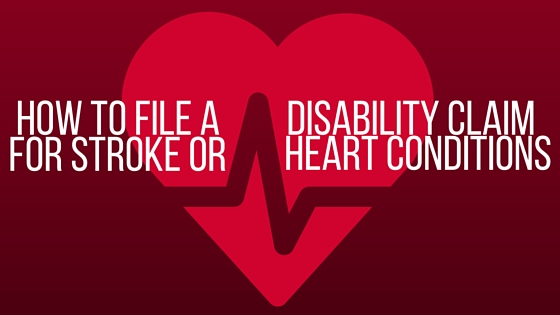How To File A Disability Claim For Stroke Or Heart Conditions

Download this episode:
On iTunes | On Stitcher
February is American Heart Month, which means we’ve seen many tips for stroke prevention and heart health. For the 85.6 million Americans living with some form of cardiovascular disease or the after-effects of a stroke, what’s the next course of action? In this episode, we discuss the dos and don’ts of filing a disability insurance claim for these health conditions.
How disabling is a stroke?
Stroke, which is the leading preventable cause of disability, can leave you with a variety of lasting symptoms. If a stroke has severely limited your ability to perform everyday tasks and essential job functions, you may qualify for disability benefits. If you had a stroke and need assistance, The Standard disability attorney in Ohio can assist you.
The effects of stroke depend on where it occurs in the brain, but can include:
- Paralysis on one side of the body
- Vision problems
- Memory loss
- Fatigue
- Significant changes in your behavior
Obtaining disability benefits after a stroke
If you file a claim shortly after suffering a stroke, your long term disability insurance carrier may wait three months to determine how you’ll recover before approving your benefits.
Although this process takes time, you should not delay when filing a claim. The sooner you file, the sooner you will have a decision!
1. Record everything.
Keep a journal to record how you are feeling and note all your symptoms, no matter how big or small. Makew sure to include dates and times on each entry, as this will help identify the frequency, severity and intensity of your symptoms.
When you see your doctor, be honest about how you feel. Bring in your list of symptoms to leave with your doctor. A detailed record of symptoms helps support your medical records and may strengthen your disability claim.
2. File for other impairments as well.
If you have another impairment made worse by your stroke, try filing for diasbility under that condition as well. For example, some stroke patients experience permanent loss of vision. If you meet the standards for legal blindness, that alone may qualify you for disability.
3. Don’t let the “second opinion doctor” derail your claim.
Insurance companies may ask you to get a second opinion from one of their doctors. However, their doctor’s exam may not reflect your condition accurately. Remember that your own doctor and medical records will best represent your state of disability.
The challenges of heart condition disability claims
Disability insurers often believe you should be able resume work shortly after heart surgery, or if your symptoms can be controlled by medications. This can make it difficult to collect disability benefits.
There are other challenges to proving disability due to heart conditions. For example, after heart surgery, your cardiac test results may look normal. However, normal test results do not mean you are fit to return to work. The stress of returning to work may place you at risk for increased cardiac symptoms and risk of relapse.
Unfortunately, most insurance companies will ignore your symptoms and only focus on your cardiac test results. It’s difficult to prove disability based on what insurers seem “subjective pain”.
1. Research your insurance company.
Each insurer uses different tactics to unreasonably delay or wrongfully deny benefits. Learn what to anticipate when filing your claim or ask a top-rated disability lawyer for free claim help.
2. Get your paperwork in order.
Insurers can deny claims for numerous reason. By minding filing deadlines, knowing the limitations of your coverage and making sure your medical records include thorough reports of your symptoms, you can reduce the likelihood of a denial.
3. When in doubt, consult an expert disability attorney.
Whether you need help with filing a claim or appeal, need help understanding the language in your disability policy, or need advice on how to handle the delay tactics of your insurance company, an expert Chicago disability attorney can answer your questions.


